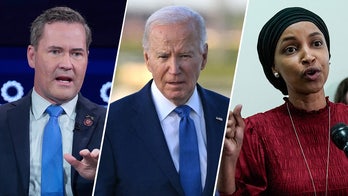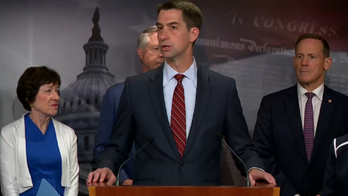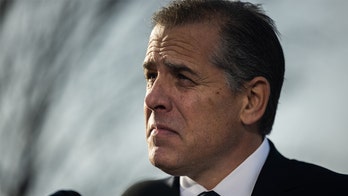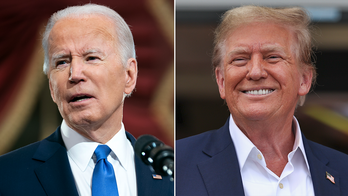As the economic recession deepens, more and more states are turning to temporary furloughs to grapple with severe budget shortfalls, prompting questions about whether the cash-strapped federal government should try the same.
In Maryland, Gov. Martin O'Malley last week ordered more than 67,000 state employees to take furloughs of two to five days, depending on salaries, and imposed pay cuts to trim $34.4 million of this year's $432 million budget shortfall.
In California, Gov. Arnold Schwarzenegger last week ordered furloughs of two days per month for the next 18 months to shave off $1.3 billion of a $40 billion budget shortfall, prompting a lawsuit from state labor unions.
Other states, including South Carolina and Kentucky, have proposed furloughs.
With 2.4 million civilians working full-time for the federal government, and a possible record budget shortfall of $1 trillion or more this fiscal year, the furlough option is available, but budget analysts who spoke to FOXNews.com say it's unlikely to happen.
"In terms of the magnitude of the problem, the amount of savings would be small," said Robert Shapiro, director of the Institute for Social and Economic Research and Policy at Columbia University.
Last year, the Pentagon considered federal furloughs of more than 200,000 civilian employees after the Army and the Marine Corps nearly ran out of money for the war effort in Iraq and Afghanistan. Lawmakers came through at the last minute with additional cash, deepening the budget deficit.
Shapiro noted that voters decisively rejected the idea of incremental solutions for restoring the economy last month when they elected Barack Obama to be the 44th president.
Obama's plan is far from incremental. It calls for jolting the economy back to life with a massive stimulus plan that could cost $850 billion. But if Obama can push that package through Congress next year, the federal debt will grow even more.
Last month, the gap between the government's revenue collections and what it paid out totaled $164.4 billion, the largest deficit ever recorded for the month of November. In November 2007, the deficit was $98.2 billion.
Dan Mitchell, a senior fellow at the Cato Institute, a libertarian think tank, said furloughing federal employees wouldn't go far enough to restore balance to the books.
"It's not just the federal workforce should be furloughed, a lot of workers should be laid off and the pay of others slashed," Mitchell said. "The federal government has total compensation twice the private sector, and that is absurd.
"Furloughing could save a little bit of money," he said, adding that he believes about 1.7 million federal workers are "nonessential." "But in the long run, it doesn't shrink the size of government."
Mitchell said he would like to see a number of government departments vanish, including Housing and Urban Development, Education, Energy, Commerce, Agriculture and Transportation.
"I have this old fashioned idea that the Founding Fathers were right," he said, referring to Thomas Jefferson's support for small government. Government expansion has "made our economy weaker, not stronger," he said.
Shapiro said a furlough of federal employees appears "counterintuitive" to the goal of a stimulus plan and isn't necessary. Besides that, the federal government has other options.
"The federal government doesn't have to balance budgets," he said. "For the states -- they have to make cuts. They can't print money."




